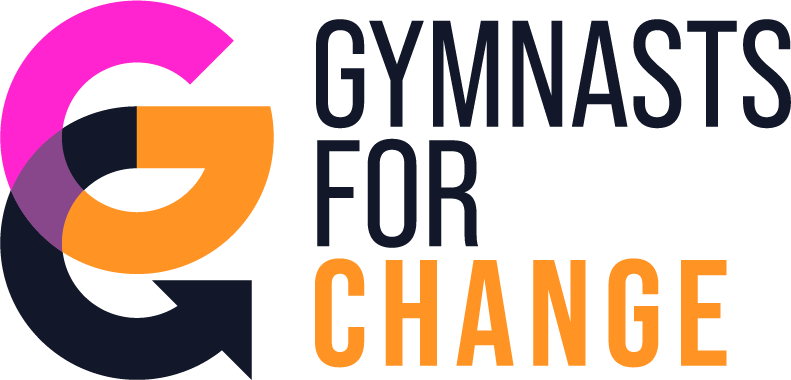G4CI Respond to ‘Safe Sport Project Report’.
Today marks the release of the ‘Safe Sport Project Report’, a significant moment for safeguarding in sport in the UK.
The report, co-chaired by Sarah Powell (CEO, British Gymnastics) and Andy Salmon (CEO, Swim England), proposes the establishment of an independent body to manage complaints and promote a safer culture across all UK sports. It is the first document of its kind in the UK to call for structural safeguarding reform at a cross-sector level.
Gymnasts for Change International (G4CI) recognises the positive direction this represents. However, we also see serious omissions, delays, and blind spots in the report’s recommendations that, if left unaddressed, will undermine its effective implementation and credibility of any future plans. Survivors deserve more than vision statements, they need urgent, concrete change.
What the Report Gets Right
Trauma-Informed Language: The inclusion of trauma-informed concepts in a national sport document is a welcome shift toward recognising the lived reality of survivors.
Acknowledgement of Cultural Resistance: The report candidly notes that apathy and fear of change persist in sport, an important admission.
Recognition of Resource Burden: Acknowledging how much safeguarding currently costs NGBs may help shift motivations toward reform.
Proposal of a Code of Practice: A well-designed cross-sport code could finally clarify acceptable behaviour and create a shared baseline.
Introduction of an Independent Body: Moving complaint handling out of the hands of sport is a vital step to building trust.
Sector-Wide Engagement: The involvement of over 140 organisations in the writing of the report signals growing momentum for change.
Commitment to Cultural Change: Proposals to embed safe sport principles in coaching and leadership pathways point toward prevention, not just response.
Potential for Shared Expertise: A national entity that facilitates cross-sport learning could be transformative, if properly funded and supported.
Key Omissions
Tokenistic Survivor Involvement: Only 10 individuals with lived experience were consulted, compared to 149 organisations, raising questions about who the report truly serves.
No Urgency, No Immediate Action: Most reforms are deferred until Year 5 or beyond. Survivors and athletes cannot wait five more years for safety, especially those who have been failed by British Gymnastics’ Independent Complaint Process (ICP) which has resulted in abusive coaches remaining in the sport.
No Public Register of Sanctioned Coaches: A basic safeguard, essential for transparency and parental trust, is entirely absent.
No Ask of Government or calls for legislative change: The report demands sector-wide change but includes no call for statutory leadership, legislation, or funding.
No Clear Funding Model: Without transparent, independent funding, the proposed entity will remain vulnerable to political and financial influence from NGBs.
Restrictive Access Criteria: Limiting the new body’s remit to “complex cases” risks excluding many survivors from the very system meant to protect them.
No Enforcement Mechanism: The report is silent on how findings will lead to sanctions or accountability. Without power, the entity may become merely symbolic.
No Mention of Therapy or Long-Term Harm: Psychological impacts like PTSD, eating disorders, or suicidal ideation are unacknowledged, despite being routine outcomes of sport-related abuse.
No Cultural Reckoning with Elite Sport: Elite sport remains untouched, a moral “no man’s land” where abuse has long been enabled under the guise of performance. The report fails to confront this space of power and impunity.
As We Highlighted in Our Reform 25 Benchmarking Report (24 June 2025)
“Safeguarding’s Over-Reliance on Children to Report Harm Is Fundamentally Flawed and Ethically Indefensible” Claire Heafford, CEO G4CI
In gymnastics, survivors and concerned parents are still being failed by a safeguarding structure riddled with conflict of interest and institutional bias. British Gymnastics, like many NGBs, continues to represent both athletes and coaches, meaning it investigates complaints on behalf of victims and whistleblowers, while also having a duty to project the coach who it is investigating’s right to coach. This dual role leads to bias, disbelief, and dismissal of survivors, while many abusive coaches remain active in the sport. (Please see the Gymnasts for Change Reform 25 Benchmarking Report for further details).
As our work supporting athletes over the past 5 years has shown, even after the Whyte Review and a three year reform process delivered via Reform 25, current safeguarding processes within British Gymnastics are often opaque, inaccessible, and traumatising. Survivors are forced to carry the burden of disclosure within systems that prioritise institutional protection over child protection. The proposed body must not replicate these dynamics under a different name.
What’s Needed Now
To avoid repeating the failures of the past, G4CI calls for the following:
Immediate short-term reforms to be prioritised by UK Sport: including interim protection measures and early wins for survivors of harm.
A fully independent funding model for the proposed Safe Sport entity: free from NGB influence.
The immediate establishment of a public register of sanctioned individuals: accessible to parents and athletes.
An enforcement framework created by the UK Sports Councils in collaboration with DCMS: with real power and teeth to act on findings to ensure abusive coaches do not remain in sport.
Legislative reform: including mandatory reporting of child sexual abuse, statutory oversight and extension of coercive control laws in sport.
Integration of therapy and survivor support: into safeguarding planning.
A public reckoning with the systemic abuse enabled by elite sport cultures.
Final Reflection:
Elite sport has long existed in a shaded no man’s land, not a world of defined ethical lines but a fog of suspended rules, unchecked power, and dissociation from harm. The Safe Sport Report gestures toward a new paradigm of prevention and independence. But without explicitly addressing the trauma, the silence, and the deeply cultic nature of elite sporting culture, it risks falling short.
Survivors are not asking for perfection. They are asking not to be erased again. They are asking for reform that is meaningful, not rhetorical. For systems that see them, hear them, and protect the next generation from being broken by their sport.


